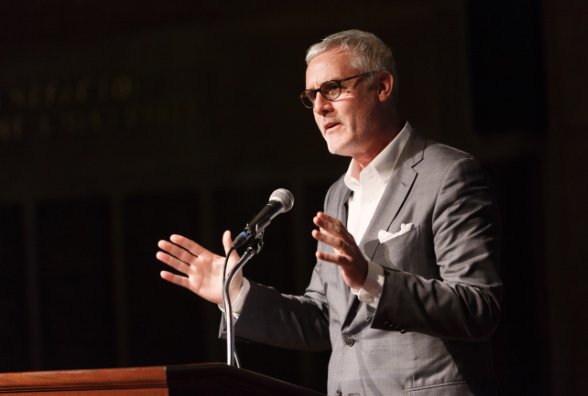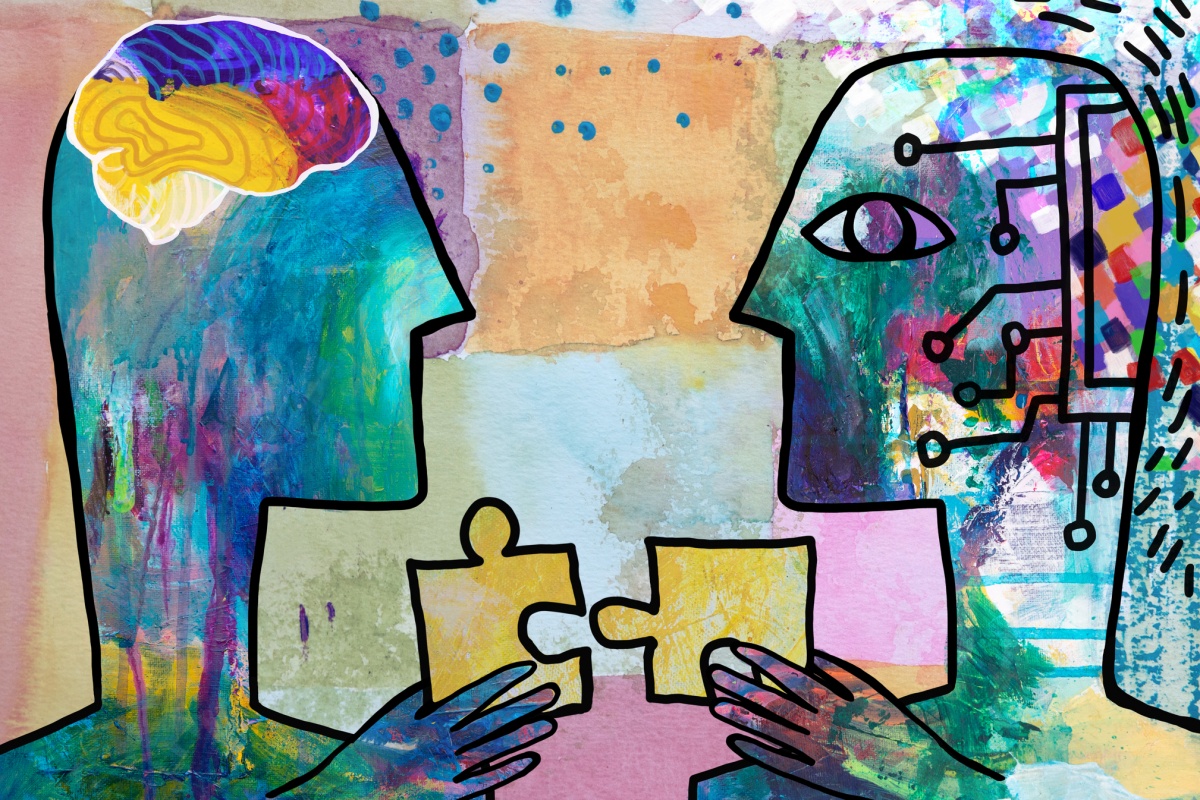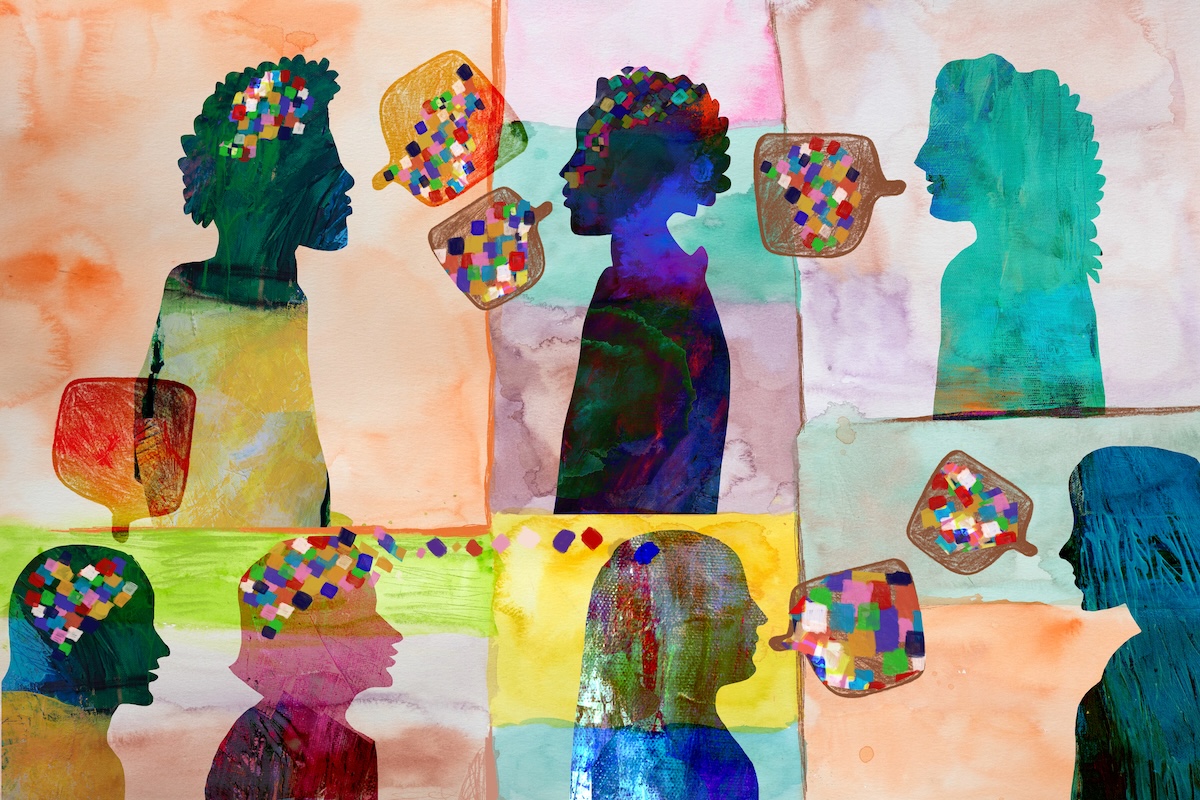Editor’s Note: This op-ed was originally published in The Boston Globe. Peter T. Coleman (Ph.D. ’98), Professor of Psychology and Education, is the author of The Way Out: How to Overcome Toxic Polarization, and Director of the Morton Deutsch International Center for Cooperation and Conflict Resolution. He will also lead TC Academy’s Conflict Intelligence (CIQ) Executive Education Program next summer.
By Peter T. Coleman
What kinds of conversation can save a democracy on the brink?
In the weeks following the shocking assassination of conservative activist Charlie Kirk, America’s national debate seemed to grow even louder — and more confused. In one corner, commentators like Ezra Klein praised Kirk’s confrontational campus exchanges as a model of “doing politics right.” In another, scholars and journalists warned that what now passes for dialogue — viral clips of rhetorical takedowns packaged for clicks — has become the lifeblood of a political culture addicted to outrage.
Everyone, however, seems to be calling for more “dialogue.” But when we invoke that word these days, what do we actually mean?
I’ve been asking that question for years.

Peter T. Coleman (Ph.D. ’98), Professor of Psychology and Education. (Photo: TC Archives)
When most people speak of “dialogue,” especially over political matters, they actually mean debate, an exercise in criticism, sparring, and verbal combat — it’s a game to win. But dialogue in the world of peace-building and conflict resolution is something else entirely. It is a process of speaking openly, often personally, and listening carefully. It is a means of communication that allows for genuine reflection, mutual learning, and discovery. Think less of a courtroom or cable news panel and more of a Quaker meeting or an Alcoholics Anonymous circle.
The distinction matters because politicians, pundits, and educators alike have been too quick to assume that all “dialogue” is good. We trumpet the value of “free speech” and “open dialogue” without distinguishing between genuine dialogue, the reflective, searching kind, and its cunning cousin: Debate that too often vilifies and polarizes.
On many campuses today, the loudest political exchanges resemble cage matches: us vs. them, right vs. wrong, victory at all costs. In 2024, when Columbia University's nascent chapter of BridgeUSA — a national student-led organization promoting dialogue — attempted to hold a facilitated discussion on the war in Israel and Palestine, an activist student group representing Palestinian views threatened to boycott it in protest, which discouraged student participation and eventually led to the event’s cancellation. Such reactive “cancellations” of political discourse on college campuses have been happening for a decade or more, and they remain far too common today — even when the objective of the event is to hear out and reckon with multiple sides of thorny issues. These cancellation spectacles — rooted in the zero-sum perspective of winner-takes-all debates — rarely strengthen democratic culture; they corrode it. They reward outrage, flatten complexity into slogans, and train young people in the art of undermining and shaming rather than the practice of comprehending.

(Photo: iStock)
If we continue to mistake adversarial debate for dialogue, our high schools and universities risk becoming training grounds for polarization rather than preparation for democracy. We will graduate citizens fluent in inciting outrage but illiterate in listening — quick to mobilize against enemies but unable to work with neighbors.
Democracy needs more than debate. It needs citizens capable of the harder, slower work of dialogue: humanizing relationships, contextualizing differences, and holding space for contradiction. And it needs more than dialogue, too. The most transformative civic experiences come from combining dialogue with debate and joint action. This is the approach of groups like Common Ground USA and Essential Partners, which begin with dialogue to build trust and compassion across moral, political, or identity-group divides, and then focus on shared local concerns and debate the best solutions to address them before mobilizing the group to work jointly to take action on the issue in their community.
Think of the civil rights movement, where hard-fought debates over strategy were grounded in close relationships and propelled forward by courageous collective action. Or consider the best classrooms, where students listen to one another, wrestle with competing ideas, and then collaborate on solutions that matter. These are the kinds of experiences that prepare people not just to argue but to lead.
Dialogue deepens understanding. Debate clarifies choices and tradeoffs. Joint action turns shared concerns into real change.
Yet too often, our schools default to extremes: either adversarial debates that simplify and
polarize or sanitized “dialogues” that avoid conflict altogether. Both miss the point. The work of
democracy requires something messier, more demanding, and ultimately more transformative:
the interplay of dialogue, debate, and action.
Dialogue deepens understanding. Debate clarifies choices and tradeoffs. Joint action turns shared concerns into real change.
Educators have a choice to make. They can lean into the noisy marketplace of outrage, mistaking confrontation for learning and division for democracy. Or they can reclaim their role as civic incubators, teaching students how to move between dialogue, debate, and action in ways that strengthen our social fabric.

(Photo: iStock)
That will mean more than just tweaking campus speech policies. It requires rethinking how we
teach. It requires rewarding listening (and hearing) as much as speaking, cultivating curiosity
alongside conviction, and creating opportunities for students to collaborate across divides on
real-world challenges.
For example, in my course “Understanding Conflict and Cooperation” at Columbia, I prepare
students on day one to navigate potentially derailing political conversations in class by setting
clear expectations and offering a structured process for handling tension. I begin by securing
their agreement in advance about my right to pause conversations that become unproductive or
too heated. If tensions do escalate, I offer to provide an “off-ramp” — such as scheduling a
follow-up discussion in a more structured space or referring students to mediation or campus
resources like an ombudsman's office.
We live in an era when algorithms online thrive on our worst instincts, pitting us against one
another for profit. If our schools and universities simply mirror that dynamic, they will fail in
their civic mission. But if they can teach the difference between shouting and understanding,
between scoring points and solving problems, we will not mistake the noise of clashing for the
sound of learning. We must not mistake division for democracy itself.
